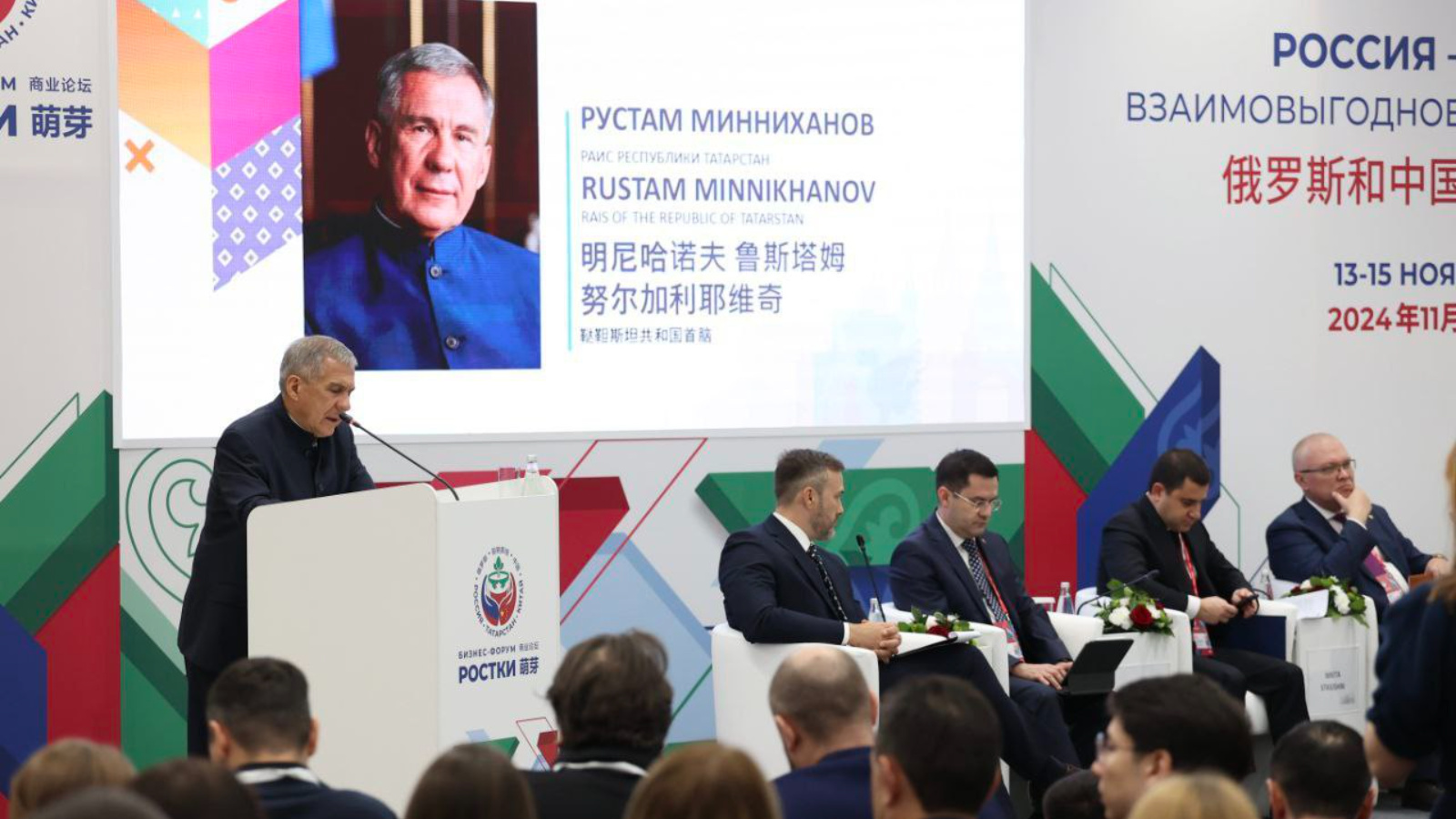"REBUS 2024: Agglomerations: Experience. Opportunities. Challenges"

Attracting financial resources to infrastructure, housing construction, and transport network development are issues that are relevant not only for Russian but also for foreign agglomerations. Practical approaches to their solution were discussed by the participants of the plenary session that opened the forum "REBUS: Agglomerations: experience, opportunities, challenges" on November 14 at the Kazan Expo site.
The meeting began with a speech by Rais Tatarstan Rustam Minnikhanov, who outlined the most pressing issues of agglomeration development in the regions of Russia and abroad. He emphasized that it is necessary to develop a systemic approach - to create legal mechanisms and a legislative framework for attracting financial resources to urban infrastructure, to ensure balanced construction of not only new housing, but also public and social facilities.
Rustam Minnikhanov recalled that in 2024, Russian President Vladimir Putin, as part of his address to the Federal Assembly, instructed to prepare 200 master plans for agglomerations and large cities. Tatarstan is fulfilling this task - three agglomerations have already been formed on the territory of the republic, with a population of over 3 million people, and these territories account for 85% of Tatarstan's GDP. The republic has accumulated impressive and successful experience in the development of agglomerations, which it is ready to share.
There are also examples of effective and competent development of agglomerations abroad. Wang Jide, Chairman of the People's Political Consultative Conference of the city of Xi'an (PRC), spoke about the experience of China during the plenary session. Thus, 13 million people live in Xi'an, the city is considered one of the largest megacities in the world, while its age exceeds three thousand years. It is developing as a major scientific center, a transport hub, and attention is paid to the corresponding infrastructure facilities. Rustam Minnikhanov drew the attention of the participants of the plenary session to the experience of the PRC and emphasized that the agglomeration should have centers of attraction, for example, educational institutions, since it is worth focusing, among other things, on attracting young people.
Representative of Egypt Omar Nagati, specialist of the Laboratory of Urban Studies, Education and Environmental Research of the Cairo Cluster, in his speech reminded that Cairo was initially built without an architectural plan, but its existing development, unique appearance should not be violated. Moreover, in the architecture of the city even in this form there is no chaos, and its structure is surprisingly thoughtful. According to the expert, in the framework of the development of agglomerations and the solution of urgent issues, it is necessary to combine practical solutions with scientific ones.

Deputy Head of the Ministry of Construction of the Russian Federation Nikita Stasishin noted the importance of tasks to increase the demographics and proposed to create "small agglomerations" in the country for this purpose. According to him, one should not focus on rigid urbanization - it is more preferable to diversify the format of housing construction in large agglomerations and regions, including low-rise buildings and individual housing construction for balanced development.
"Agglomerations live and develop," Rustam Minnikhanov emphasized. – This process is associated with a number of tasks: job creation, construction and modernization of engineering, social infrastructure, and transport networks. Each region and each country solves them in its own way, has its own unique experience, which will certainly be useful and interesting."
On this note, the plenary session ended. Summing up its results, Rustam Minnikhanov and Nikita Stasishin agreed to submit the documents developed within the framework of the forum for discussion in the State Council of the Russian Federation.
On November 15, the exchange of experience and discussion of current issues will continue: expert sessions and discussions are planned for the second day of the forum, as well as the formation of a resolution reflecting the general principles for integrating agglomerations into legislative practice, taking into account the opinions of experts.